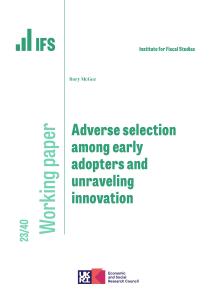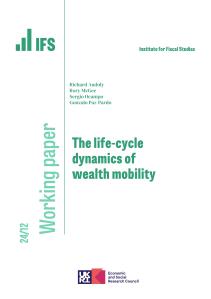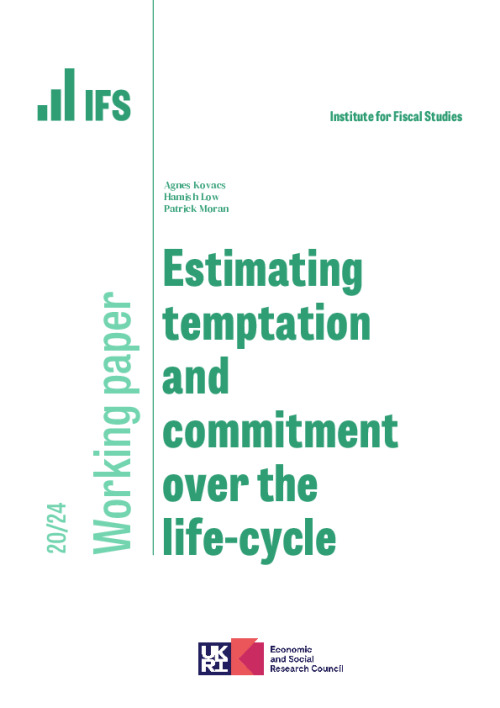Downloads
This paper estimates the importance of temptation (Gul and Pesendorfer, 2001) for consumption smoothing and asset accumulation in a structural life-cycle model. We use two complementary estimation strategies: first, we estimate the Euler equation of this model; and second we match liquid and illiquid wealth accumulation using the Method of Simulated Moments. We find that the utility cost of temptation is one-quarter of the utility benefit of consumption. Further, we show that allowing for temptation is crucial for correctly estimating the elasticity of intertemporal substitution: estimates of the EIS are substantially higher than without temptation. Finally, our Method of Simulated Moments estimation is able to match well the life-cycle accumulation profiles for both liquid and illiquid wealth only if temptation is part of the preference specification. Our findings on the importance of temptation are robust to the different estimation strategies.
Authors

Research Fellow University of Oxford
Hamish is the James Meade Professor of Economics at the University of Oxford, a Professorial Fellow of Nuffield College and a Research Fellow at IFS.

Research Fellow University of Copenhagen
Patrick is a Research Fellow at the IFS, an Assistant Professor of Economics at the University of Copenhagen and a faculty member in the CEBI.

Research Associate University of Manchester
Agnes is an applied economist who uses economic models and micro-level data to better understand the consumption and savings behaviour of households.
Working Paper details
- DOI
- 10.1920/wp.ifs.2020.2420
- Publisher
- The IFS
Suggested citation
A, Kovacs and H, Low and P, Moran. (2020). Estimating temptation and commitment over the life-cycle. London: The IFS. Available at: https://ifs.org.uk/publications/estimating-temptation-and-commitment-over-life-cycle (accessed: 28 April 2024).
More from IFS
Understand this issue

Raising revenue from closing inheritance tax loopholes
18 April 2024

Why inheritance tax should be reformed
18 January 2024

How important is the Bank of Mum and Dad?
15 December 2023
Policy analysis

Tax and public finances: the fundamentals
23 August 2023

Reforming the taxation of non-doms: policy options and uncertainties
4 March 2024

Social mobility and wealth
Academic research

Saving by buying ahead: stockpiling in response to lump-sum payments
2 February 2024

Adverse selection among early adopters and unraveling innovation
18 December 2023

The life-cycle dynamics of wealth mobility
10 April 2024
